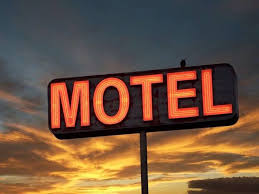
It is not usual to write whole sentences in capitals. A sentence or paragraph written in capitals is very difficult to read. Did you ever see a book written in capital letters? Of course not! We cannot easily read lots of text in capital letters. For native English speakers, children usually learn to read and write small letters before capital letters.
In English, capital letters give us many visual clues, such as the start of a sentence or a proper noun. Texts written completely in capitals are more difficult to read than texts in the usual mix of capital and small letters. Lawyers, for example, know that capitals are difficult to read and that is why they often write contracts in capital letters.
When do we Use Capital Letters?
- Use a capital letter for the personal pronoun ‘I’ irrespective of where it occurs in the sentence.
He said I should visit the library. - Use a capital letter to begin a sentence or to begin a quotation:
The man is tall.
Suddenly Mary asked, “Do you love me?” - Use capital letters for many abbreviations and acronyms:
ECOWAS (Economic Community of West African States)
G.M.T. or GMT (Greenwich Mean Time) - Use a capital letter for days of the week, months of the year, and holidays:
Monday, Tuesday, January, February
Christmas, Armistice Day - Use a capital letter for countries, languages & nationalities, religions:
Nigeria, United States, China, France, Yoruba
Christianity, Buddhism, Islam - Capitalize a person’s title when it precedes the name. Do not capitalize when the title is acting as a description following the name.
Ms. Omotosho, the chairperson of the company, will address us at noon. - Use a capital letter for proper nouns and names of places and rivers etc.
Capitalize a proper noun. Example: Ibadan, River Niger, Lake Tangayika. - Use a capital letter for trade-marks and names of companies and other organizations:
Fanta, Toyota, - Use a capital letter for places and monuments:
Aso Rock, Paris, Tafawa Balewa Square
Buckingham Palace, the White House - Use a capital letter for names of vehicles like ships, trains, and spacecraft:
The Titanic, Challenger 2 - Use a capital letter for titles of books, poems, songs, plays, films etc:
Who Moved My Cheese?
The Longest Day - Use capital letters (sometimes!) for headings, titles of articles, books, etc., and newspaper headlines:
MAN BITES DOG - Capitalize the titles of high-ranking government officials when used before their names. Do not capitalize the civil title if it is used instead of the name.
Examples: The president will address Congress.
All senators are expected to attend.
Rule 12. Always capitalize important words in titles of publications regardless of their parts of speech. Capitalize other words within titles, including the short verb forms Is, Are, and Be.
Exception: Do not capitalize little words within titles such as a, an, the, but, as, if, and, or, nor, or prepositions, regardless of their length.
Examples: The Day of the Jackal
Our Husband Has Gone Mad Again
A Tale of Two Cities
Rule 13. Capitalize the first word of a salutation and the first word of a complimentary close.
Examples: Dear Ms. Mohamed:
My dear Mr. Johnson:
Very truly yours,
- After a sentence ending with a colon, do not capitalize the first word if it begins a list.
Example: These are my favourite foods: chocolate cake, spaghetti, and beans. - Do not capitalize when only one sentence follows a sentence ending with a colon.
Example: I love Jane Smiley’s writing: her book, A Thousand Acres, was beautiful.
Rule 16. Capitalize when two or more sentences follow a sentence ending with a colon.
Example: I love Jane Smiley’s writing: Her book, A Thousand Acres, was beautiful. Also, Moo was clever.
Kindly like, comment, follow, and share.





















